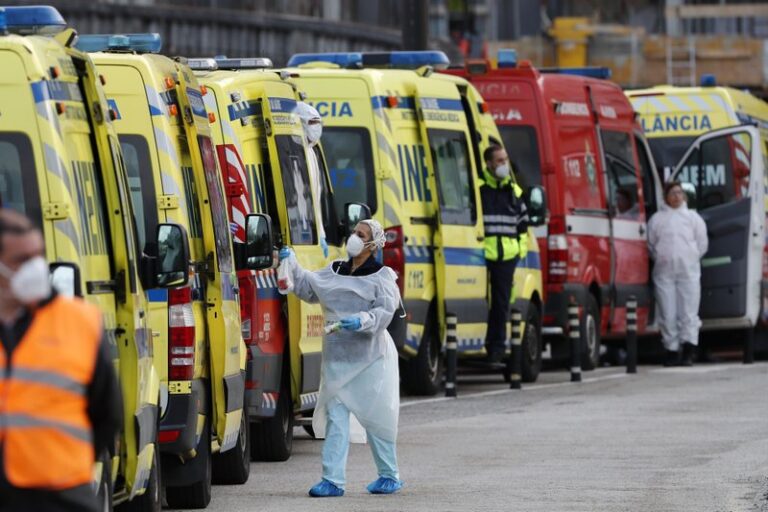
(AP) — In the first week of December, Portugal’s prime minister gave his pandemic-weary people an early Christmas gift: restrictions on gatherings and travel due to COVID-19 would be lifted from Dec. 23-26 so they could spend the holiday season with family and friends.
Soon after those visits, the pandemic quickly got out of hand.
By Jan. 6, Portugal’s number of new daily COVID-19 cases surged past 10,000 for the first time. In mid-January, with alarm bells ringing as each day brought new records of infections and deaths, the government ordered a lockdown for at least a month and a week later shut the country’s schools.
But it was too little, too late. Portugal has for almost a week had the most daily cases and deaths per 100,000 people in the world, according to statistics compiled by Johns Hopkins University.
Outside the country’s overloaded hospitals now, long lines of ambulances wait for hours to deliver their COVID-19 patients.
Portugal’s problems illustrate the risk of letting down pandemic guards when a new, fast-spreading variant is lurking unseen.
The pandemic’s spread across Europe is increasingly being powered by an especially contagious virus mutation first detected last year in southeast England, health experts say. The threat is prompting governments to introduce harsh new lockdowns and curfews.
Viggo Andreasen, an assistant professor in mathematical epidemiology at Roskilde University, west of Copenhagen, said the new variant is a game-changer.
“On the surface, things may look good but underneath, the (new) variant is looming,” he told The Associated Press. “Everyone in the business knows that there is a new game on its way.”
In Denmark, the variant is threatening to spin the pandemic out of control, despite relative early success in containing the spread of the virus. Prime Minister Mette Frederiksen said this month “it is a race against time” to get people vaccinated and slow the variant’s progress because it is already too widespread to stop.
The National Institute for Public Health and the Environment in the Netherlands last week reported rising cases of the variant and warned it will push higher the number of hospital admissions and deaths.
“There are essentially two separate COVID-19 epidemics: one epidemic involving the ‘old’ variant, in which infections are decreasing, and another epidemic involving the (new) variant, in which infections are increasing,” it said.






